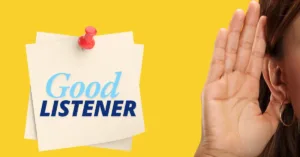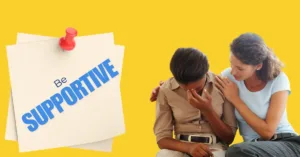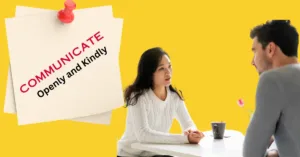
How to Build Strong Relationships: 7 Tips for Lasting Connections
- 146
- 0
- 0
How to Build Strong Relationships
Building strong relationships is one of the most important things we can do in life. Good relationships make us happier, healthier, and more successful. But sometimes, it’s hard to know how to create and keep these strong bonds. Don’t worry. We’re here to help with 7 easy tips for how to build strong relationships that anyone can use to create better connections.
Be a Good Listener

Listening is the foundation of any strong relationship. Listening to someone shows that you value their thoughts and opinions. To improve your listening skills, focus on actively engaging and understanding their message.
- Give the person your full attention. Put away your phone and look at them when they’re talking.
- Don’t interrupt. Let them finish their thoughts before you speak.
- Show that you’re listening by nodding or saying things like “I see” or “Uh-huh.”
- Ask questions to understand better. This shows you’re interested and helps you learn more.
Remember, listening isn’t just about hearing words. It’s about trying to understand the other person’s feelings and points of view.
Be Honest and Trustworthy

Trust is like glue in relationships. It holds people together. To build trust:
- Be honest at all times, even when it’s difficult.
- Keep your promises. If you say you’ll do something, do it.
- Don’t share secrets that others tell you.
- Admit when you’re wrong and say sorry.
When people know they can trust you, they’ll feel safer opening up to you. This helps create a deeper connection.
Show Appreciation

Everyone likes to feel valued. Expressing gratitude is an easy and effective way to deepen and strengthen your relationships. Try these ideas:
- Express gratitude frequently, even for the little things.
- Tell people what you like about them. Maybe it’s their sense of humor or how kind they are.
- Perform kind gestures for others voluntarily, without waiting for them to request your help.
- Remember important dates like birthdays and anniversaries.
When you show appreciation, you make others feel good. This makes them want to spend more time with you and do nice things for you too.
Spend Quality Time Together

In our busy world, it’s easy to forget the importance of simply spending time with people we care about. Quality time means giving someone your full attention without distractions. Here are a few approaches to achieve this:
- Have regular “catch-up” times. This could be a weekly coffee meetup or a monthly dinner gathering.
- Try new activities together. This could be anything from cooking a new recipe to taking a class together.
- Put away phones and devices when you’re together.
- Create traditions, like a movie night or a yearly trip.
Remember, it’s not about how much time you spend, but how present you are in that time.
Be Supportive

Supporting others in good times and bad is key to strong relationships. Here’s how to be more supportive:
- Celebrate others’ successes. Celebrate their achievements and share in their joy when positive things come their way.
- Offer help when someone is struggling. Ask, “How can I help?” or “What do you need?”
- Encourage. Say things like, “I believe in you” or “You can do this.”
- Listen without judging when someone needs to talk.
Being supportive shows that you care about the other person’s well-being. This builds a stronger bond between you.
Respect Boundaries

Every person has their own needs for space and privacy. Respecting these boundaries is important for healthy relationships. Here’s how:
- Ask people what they’re comfortable with. Everyone is different.
- Don’t pressure people to share more than they want to.
- Give people space when they need it.
- Respect people’s right to say “no” to things.
When you respect boundaries, you show that you care about the other person’s comfort. This builds trust and makes the relationship stronger.
Communicate Openly and Kindly

Good communication is the key to solving problems and avoiding misunderstandings. Here are some suggestions for improving communication:
- Be clear about your thoughts and feelings. Don’t expect others to guess.
- Use “I” statements. Instead of saying “You make me feel,” use “I feel” to express your emotions. This approach helps prevent placing blame on others.
- Be kind in how you say things. Even if you’re upset, try to speak calmly.
- Listen to understand, not just to reply.
- Don’t assume you know what others are thinking. Ask them.
Keep in mind that it’s not only your words that count but also the way you express them that is important.
Putting It All Together
Cultivating strong relationships requires patience and dedication, but the investment is invaluable. Strong relationships make our lives richer and more enjoyable. They give us support when times are tough and people to celebrate with when things are good.
Let’s recap our 7 tips:
- Be a good listener
- Be honest and trustworthy
- Show appreciation
- Spend quality time together
- Be supportive
- Respect boundaries
- Communicate openly and kindly
Try using these tips in your daily life. You might be surprised at how much your relationships improve. Remember, every small positive action builds stronger connections over time.
Conclusion
It’s also important to know that no one is perfect at relationships all the time. We all make mistakes. The key is to keep trying and to learn from our mistakes. If you mess up, don’t be too hard on yourself. Just aim to improve in the future.
Lastly, while these tips can help you build strong relationships with others, don’t forget about your relationship with yourself. Treat yourself with the same kindness, respect, and understanding that you show to others. When you have a good relationship with yourself, it’s easier to have good relationships with other people too.
Building strong relationships is one of the most rewarding things we can do in life. It requires patience and dedication, but the outcomes are truly rewarding. Strong relationships give us joy, support, and a sense of belonging. They enhance our lives and add greater significance to our experiences. So go ahead and try these tips. Your relationships – and your life – will be better for it.
FAQs
1. How can I start building strong relationships with others?
Begin by being kind, listening well, and showing genuine interest. Give your time, share experiences, and be supportive. Building trust and understanding takes effort, so be patient and consistent in your actions.
2. Why is communication important in strong relationships?
Clear, honest, and respectful communication helps avoid misunderstandings. It allows you to express feelings, listen to others, and solve problems together. Open dialogue builds trust, making relationships stronger and more meaningful over time.
3. How can I resolve conflicts without damaging relationships?
Stay calm, listen carefully, and avoid blaming. Concentrate on comprehending each other’s viewpoints and collaboratively seeking solutions. Respectful conversations, empathy, and compromise can help resolve conflicts while preserving trust and connection.
4. What role does trust play in strong relationships?
Trust is the foundation of any strong relationship. It creates a sense of safety and reliability, allowing people to open up, share freely, and feel secure. Establishing trust necessitates transparency, reliability, and a foundation of mutual respect.
5. How can I maintain long-lasting relationships?
Keep communication open, be supportive, and show appreciation. Make time for each other, celebrate special moments, and be there during tough times. Regularly checking in helps maintain connections and keeps the relationship strong.
Also Read:
How to Stay Productive at Work Or School
The Importance of Setting and Achieving Personal Goals
References:
https://en.wikipedia.org/wiki/Relationship_maintenance
https://www.nonviolentcommunication.com/
https://pmc.ncbi.nlm.nih.gov/articles/PMC10012819/
Disclaimer:
The tips provided in this blog for building strong relationships are for informational purposes only and should not be considered professional advice. Individual circumstances may vary, and it is advisable to seek guidance from a qualified relationship counselor or therapist for personalized support.
- #betterrelationship
- #betterrelationships
- #happyfamily
- #happylife
- #healthyrelationship
- #healthyrelationships
- #howtobuildrelationship
- #howtobuildrelationships
- #howtobuildstrongrelationship
- #howtobuildstrongrelationships
- #myblogpod
- #relationship
- #relationships
- #strongbong
- #strongrelationship
- #strongrelationships
Related post

7 Health Benefits of Assam Tea


